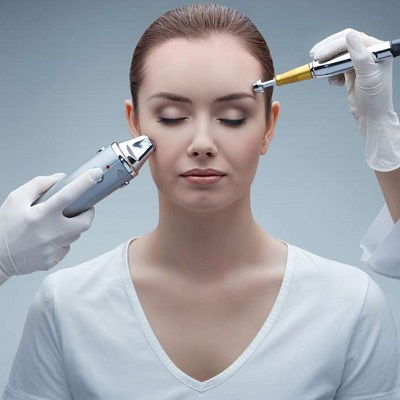Debunking Common Dermatology Misconceptions
When it comes to skin health, many myths and misconceptions cloud the public’s understanding. Whether you're seeking advice from a Dermatologist in Oman or researching skincare tips online, it’s important to separate fact from fiction. Misunderstandings about skin care and treatments can lead to ineffective routines, or worse, damage to your skin. This article aims to debunk some of the most common dermatology myths and provide clarity so you can make informed decisions about your skin health.

Why Consult a Dermatologist?
Skin is the largest organ of the body and reflects much about our overall health. Consulting a specialist in dermatology can provide personalized guidance tailored to your skin type and concerns. In Oman, many individuals hesitate to see a skin expert due to common myths or misinformation. However, early consultation with a professional can prevent minor issues from turning into serious problems.
Myth 1: Acne Is Caused by Poor Hygiene
One of the most persistent myths is that acne is simply a result of not washing your face properly. In reality, acne is largely influenced by hormonal changes, genetics, and inflammation rather than dirt. Over-washing or scrubbing harshly can actually worsen acne by irritating the skin and stripping away natural oils, leading to more breakouts.
The Role of Hormones and Genetics
Hormonal fluctuations during puberty, menstrual cycles, or stress trigger excess oil production, which clogs pores and causes acne. Genetics also play a significant role in determining who is more prone to acne.
Effective Acne Management
Instead of over-washing, a dermatologist in Oman would recommend gentle cleansing combined with targeted treatments like topical retinoids or antibiotics when necessary. It’s crucial to follow a skincare regimen suited to your skin type.
Myth 2: Tanning Is a Safe Way to Get Healthy Skin
Many believe that a sun-kissed glow is a sign of healthy skin, but tanning actually damages skin cells. Ultraviolet (UV) rays from the sun penetrate the skin and can cause premature aging, wrinkles, and increase the risk of skin cancer.
Understanding UV Damage
UV radiation damages the DNA in skin cells, which over time leads to mutations and skin malignancies. Tanning beds pose similar risks and are not a safe alternative to natural sunlight.
Protecting Your Skin
Using broad-spectrum sunscreen daily, wearing protective clothing, and avoiding peak sun hours are the best ways to protect your skin from harmful UV rays. Regular skin check-ups can help detect any suspicious changes early.
Myth 3: Expensive Skincare Products Are Always Better
Pricey creams and serums are often marketed as miracle solutions, but cost doesn’t always equate to effectiveness. Many affordable products contain active ingredients proven to improve skin conditions just as well as luxury brands.
What Matters in Skincare?
Look for products with ingredients like niacinamide, hyaluronic acid, salicylic acid, or retinol, which have strong scientific backing. Consulting a dermatologist can help you identify what your skin truly needs rather than chasing expensive trends.
Personalized Skincare Plans
A tailored approach is often more beneficial than any single product. Factors such as skin type, concerns, and sensitivities play a crucial role in selecting the right skincare routine.
Myth 4: Dermatology Treatments Are Only for Cosmetic Purposes
Many people assume dermatologists only handle cosmetic issues like acne scars, wrinkles, or pigmentation. While cosmetic dermatology is a significant part of the field, dermatologists also diagnose and treat a wide range of medical skin conditions.
Beyond Aesthetics
Conditions such as eczema, psoriasis, skin infections, allergic reactions, and even skin cancers fall under the dermatologist’s expertise. Early diagnosis and treatment can improve outcomes significantly.
Importance of Medical Dermatology
If you notice persistent rashes, unusual moles, or chronic itching, seeing a specialist can provide proper management and prevent complications.
Myth 5: Natural or Homemade Remedies Are Always Safer
Natural remedies like lemon juice, baking soda, or essential oils are often suggested as quick fixes, but they can sometimes cause more harm than good.
Potential Risks of DIY Treatments
Some natural ingredients are highly acidic or irritating and can disrupt the skin’s barrier function. This may result in redness, peeling, or increased sensitivity.
Evidence-Based Care
A dermatologist in Oman will always recommend treatments backed by scientific research and safety data, ensuring effective and gentle care for your skin.
Myth 6: Skin Cancer Is Rare and Only Affects Older People
Skin cancer is often misunderstood as a disease only older individuals get, but it can affect people of all ages. Oman’s climate, with high sun exposure, makes skin protection especially important.
Recognizing Early Signs
Unusual moles, spots that change in size or color, or sores that don’t heal should be checked by a skin specialist promptly.
Prevention Is Key
Regular use of sunscreen, avoiding tanning, and performing self-examinations can greatly reduce risk and catch skin cancer early.
Myth 7: Oily Skin Does Not Need Moisturizer
People with oily or acne-prone skin sometimes skip moisturizing, fearing it will increase oiliness. However, moisturizers help balance the skin’s hydration and can actually reduce excess oil production.
Choosing the Right Moisturizer
Lightweight, non-comedogenic, oil-free moisturizers are ideal for oily skin types. They provide necessary hydration without clogging pores.
Hydration Supports Skin Health
Maintaining skin hydration is essential for barrier function, elasticity, and overall skin health regardless of skin type.
How to Find the Right Dermatology Care in Oman
Given the spread of misinformation, it’s crucial to seek advice from qualified professionals. When looking for a dermatology expert in Oman, consider the following:
- Verify qualifications and experience.
- Look for clinics that offer personalized treatment plans.
- Ensure the clinic follows international safety and hygiene standards.
- Read reviews or testimonials for patient satisfaction.
Conclusion
Understanding your skin and debunking common dermatology myths can empower you to take better care of your health. Whether you struggle with acne, aging concerns, or suspicious skin changes, consulting a knowledgeable skin specialist is the best step toward effective treatment. Avoid falling prey to misinformation and trust expert advice for radiant, healthy skin.
